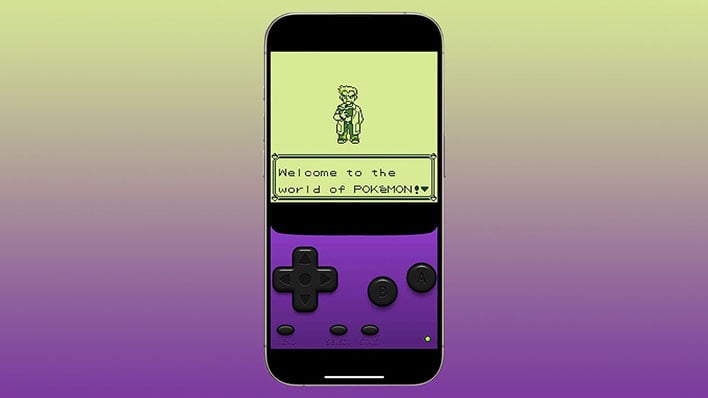
For as long as the Apple App Store has existed, iPhone owners have been clamoring for retro game emulators. This class of apps is common Android, but Apple’s protectionist policies were designed to push people to buy more iPhone games rather than use game ROMs that Apple could not monetize. It looked as if things might change when Apple finally opened the doors to emulation earlier this month, but progress was halted abruptly this past weekend. After approving the first GBA emulator app for iPhone, Apple has removed it from the store.
The app in question is known as iGBA. Like other Game Boy Advance emulators, it allows players to load any game ROM that they backed up from a legally purchased cartridge. Just kidding—almost everyone downloads them illegally from the internet. That’s probably not what got iGMA pulled from the App Store, though.
iGBA is actually a clone of an open source app called GBA4iOS, which was created several years ago by developer Riley Testut. According to MacRumors, Testut has confirmed on Threads that iGBA is an unauthorized copy of the app that has been crammed full of ads and tracking code. “So glad App Review exists to protect consumers from scams and rip-offs like this,” Testut quipped. Currently, you can only install GBA4iOS using one of several convoluted workarounds.

As justification for the removal, Apple has cited App Store guidelines 4.3 and 5.2, which cover spam and copyright, respectively. That certainly sounds like the app was pulled for co-opting an open source project. However, it’s also possible Apple got cold feet about allowing a free-for-all emulator app in the store, or Nintendo’s notoriously aggressive lawyers may have complained.
Apple has been under intense regulatory pressure in recent months. The US Department of Justice has filed an antitrust case against Apple, alleging it has leveraged its monopoly position to stifle competition. One line of evidence the DOJ will pursue is Apple’s refusal to allow “mini apps,” a general term covering software and features that are not part of the App Store binary. That includes game emulators. Apple’s latest App Store guidelines have finally opened the door to emulators, which could give it more ammunition as the antitrust case unfolds.
So, even if iGBA is gone, there are surely more emulators on the way. This could bring Apple into a confrontation with Nintendo, even if the latter didn’t have anything to do with this first emulator removal. The number of people downloading old Nintendo ROMs online is about to shoot up, and Nintendo’s legal team will be looking to drop the hammer.